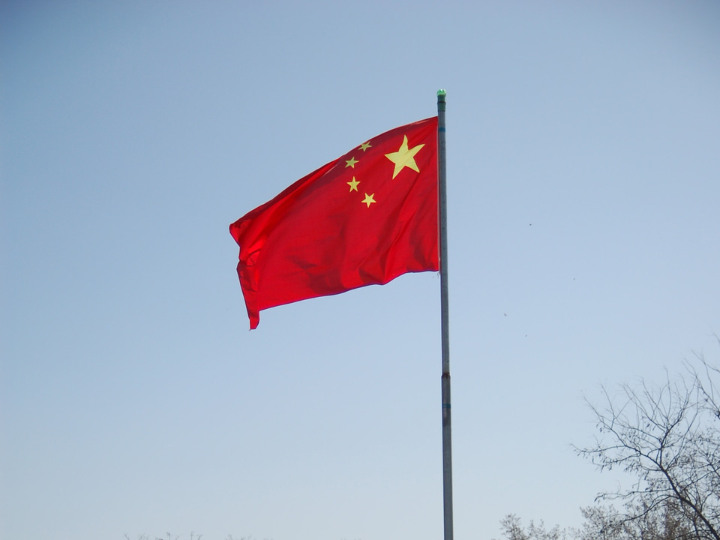European NATO members will commit to a tougher stance towards China, but scepticism over the Anglo-Saxon push to put Beijing in the alliance’s crosshairs remains.
NATO members last year took a more moderate approach, toning down the need to focus too intensely on China. However, a recent NATO survey across all member states found Beijing was viewed as a security threat by 52% of respondents, an increase of 11 percentage points from 2021.
As the alliance is poised to agree on a new strategy for the next decade, the Strategic Concept, it is expected to designate China as a ‘security challenge’, after not having mentioned it in previous documents.
While most Eastern European members like Poland stress Russia and collective defence of the Eastern Flank should be NATO’s core task, they recently adopted a harsher tone toward Beijing.
“It is essential to monitor China’s activities, particularly in cyberspace, new technologies and supply chains. These areas require attention not only from an economic but also from a security perspective,” Jakub Fajnor at the Czech Defence Ministry told EURACTIV.cz.
“While China represents a different kind of challenge for NATO than Russia, it is necessary to reflect this challenge in the future direction of the Alliance,” he added.
Czech Defence Ministry sees collective defence as NATO’s priority, with crisis management and cooperative security as prerequisites.
Fajnor continued that Czechia considers a strong transatlantic link, cooperation with the EU, resourcing of defence and, in particular, investment in the modernisation of the armed forces to be key prerequisites for the fulfilment of these tasks.
Czech security expert Petr Bohacek from the Association of the International Affairs emphasised the need for a balanced approach within NATO regarding Russian and Chinese threats.
“Without the war in Ukraine, China would be the top NATO challenge in its upcoming Strategic Concept. However, the two countries represent a shared threat to many degrees,” Bohacek told EURACTIV.cz.
“China serves as an enabler for the Russian aggression, mitigates the attempts for its diplomatic and economic isolation, and provides a protective clout over Moscow thanks to which it can garner the support of other countries outside of the West,” he said.
He added that while Russia is the main threat to Europe, China looms over the United States. For the alliance to remain strong, united, and mutually beneficial, a balance is needed.
The Slovak Defence Ministry agreed, adding that China poses “implications” for the security of the Euro-Atlantic area, particularly in terms of supply chain reliability and investment in critical infrastructure.
“It is in NATO’s interest to engage constructively with China while preserving the unity of the allies, in order to protect the alliance’s interests,” it added, referring to Beijing’s growing political and economic influence in parts of Europe.
NATO members this week are also set to seek better cooperation with Australia, Japan, New Zealand and South Korea, who will be attending the summit as “partner” nations to discuss Asia-Pacific security.
Europe’s stepping up on providing security after Russia invaded Ukraine and pledging to increase defence spending “will also make it better partners for security cooperation with Asia”, Dutch Defence Minster Kajsa Ollongren said at the recent Shangri-la Dialogue in Singapore.
In comments to EURACTIV, the Dutch defence ministry said, “At this moment, we do not foresee a direct military (for example kinetic) threat from China, but we do follow China’s rapid military build-up with concern.”
They added that there should be caution over the country’s increased military expansion and increasingly assertive posture in the Indo-Pacific region.
A hardening position from NATO and the EU reflects a similar trend in Germany and France.
“The French government’s approach towards China is one of risk-reduction, especially when it comes to technology transfers and foreign direct investments,” Mathieu Duchatel, Director of the Asia Programme at the Institut Montaigne, told EURACTIV France.
“The French position has never been made public, but it has considerable economic interests in the Indo-Pacific region, especially in protecting the sovereign integrity of its exclusive economic zones,” he added.
However, more sceptical voices warn Europe’s American allies would largely project their threat perception onto Europeans.
??Sources close to the Greek Ministry of Defence believe that NATO is set to follow US policy on Beijing, coupled with increased defence spending and the creation of a ‘Cold War-era’-like wall vis-a-vis China and Russia.
According to a retired Greek officer who wished to remain anonymous, Europe, including Greece, would thus be locked into the Anglo-Saxon interest path, increasing its reliance on the US and Britain.
“NATO is the Anglo-Saxon axis and has nothing to offer the EU anymore”, he added.
In Spain, “the priority is not China or even Russia”, Mario Esteban, senior researcher at Elcano Institute told EuroEFE, adding that Beijing does not pose an “existential threat” to Europe and NATO as former US President Donald Trump had claimed.
“What worries the US most about China are the implications (of Beijing’s policy) for the security of East Asia as a whole, and the threats that may be posed to the US hegemony in the world,” he said.
“We are more focused on issues such as terrorist threats and the pressure of migratory flows which relates to our geographical position, very close to North Africa and the Maghreb,” he said about Spain’s threat perception and suggested Madrid is likely not going to be particularly proactive on China.
*first published in: www.euractiv.com




 By: N. Peter Kramer
By: N. Peter Kramer
